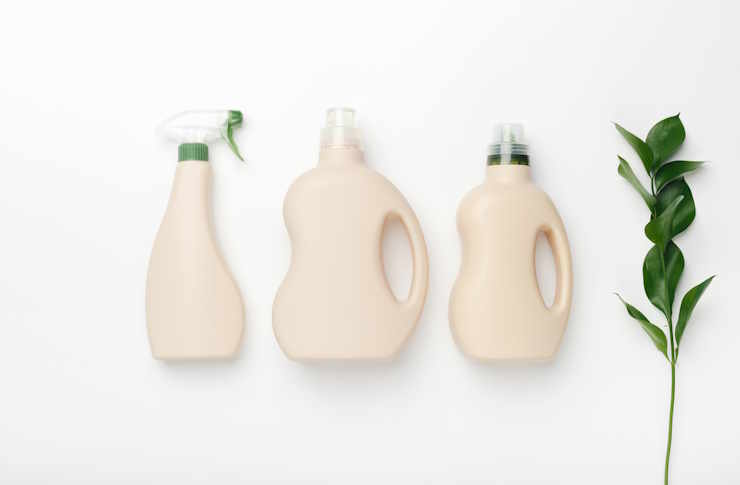Healthcare Career Opportunities in Dubai: A Guide for Nurses and Caregivers
Dubai's healthcare system has expanded significantly in recent years, creating numerous opportunities for healthcare professionals. The emirate has invested heavily in medical infrastructure and facilities to support its growing population and medical tourism sector. This guide explores the types of healthcare positions available in Dubai, focusing particularly on nursing and caregiving roles, along with the requirements needed to pursue a healthcare career in this dynamic city.

Types of Healthcare Jobs Available in Dubai
Dubai offers a diverse range of healthcare positions across its public and private sectors. The healthcare workforce includes physicians, specialists, nurses, allied health professionals, and support staff. Public sector opportunities exist within the Dubai Health Authority (DHA), which manages government hospitals and clinics. The private sector encompasses multinational hospital chains, specialized clinics, rehabilitation centers, and home healthcare services.
Common healthcare positions in Dubai include general practitioners, medical specialists, registered nurses, nurse practitioners, laboratory technicians, radiographers, physiotherapists, occupational therapists, pharmacists, and healthcare administrators. The growing elderly population and expansion of specialized care facilities have also increased demand for geriatric care specialists, long-term care professionals, and palliative care experts.
Nursing Job Opportunities in Dubai’s Healthcare Sector
Nursing represents one of the most in-demand healthcare professions in Dubai. Hospitals, clinics, and specialized care facilities frequently seek qualified nursing professionals to fill various roles. General nursing positions exist across departments including emergency care, intensive care, pediatrics, obstetrics, surgery, and general ward management.
Specialized nursing roles offer additional opportunities for those with advanced training. These include critical care nurses, operating room nurses, oncology nurses, mental health specialists, and midwives. The home healthcare sector has expanded significantly, creating positions for nurses who provide in-home care for patients requiring ongoing medical support. School nursing has also emerged as an important field, with many educational institutions employing full-time nursing staff.
For experienced nursing professionals, career advancement pathways include roles in nursing management, education, quality improvement, and infection control. These positions often require additional certifications or advanced degrees but typically offer higher compensation and greater responsibility.
Requirements for Healthcare Careers in Dubai
Working in Dubai’s healthcare sector requires meeting specific educational and licensing requirements. For nursing professionals, the minimum qualification is typically a Bachelor of Science in Nursing or equivalent degree from an accredited institution. Some specialized roles may require postgraduate qualifications or specific certifications.
All healthcare professionals must obtain a license from the Dubai Health Authority (DHA) or the UAE Ministry of Health and Prevention (MOHAP). This licensing process involves:
-
Verification of educational credentials and professional experience
-
Passing a professional competency examination
-
Language proficiency assessment (English is widely used in healthcare settings)
-
Medical fitness testing
-
Good standing certification from previous employers
For nurse licensing specifically, the DHA classifies nurses into different categories based on qualifications and experience. These include Registered Nurse, Specialized Nurse, Assistant Nurse, and Practical Nurse. Each category has specific educational requirements and scope of practice.
Healthcare Work Environment in Dubai
Healthcare facilities in Dubai generally maintain high standards, with many adhering to international accreditation requirements. Most hospitals feature modern infrastructure, advanced technology, and comprehensive support services. Work environments typically follow international best practices for patient care and safety protocols.
Working hours in healthcare facilities vary depending on the role and facility. Hospital-based positions often involve shift work, including nights, weekends, and holidays. Clinic-based roles may offer more regular hours. The standard workweek in the UAE is 40-48 hours, though healthcare professionals often work based on rotating schedules.
The multicultural nature of Dubai’s population creates a diverse work environment. Healthcare professionals interact with patients and colleagues from numerous cultural backgrounds, making cultural sensitivity and communication skills particularly valuable. English serves as the primary professional language, though Arabic language skills can be beneficial.
Cultural Considerations for Healthcare Workers
Healthcare professionals working in Dubai should understand local cultural norms and practices that may affect patient care. Islamic customs influence many aspects of healthcare delivery, particularly regarding gender considerations, privacy, and family involvement in medical decisions.
Many patients prefer same-gender healthcare providers, especially for examinations or procedures involving sensitive body areas. Family members often play significant roles in healthcare decisions, reflecting the importance of family bonds in Arab culture. During Ramadan, healthcare professionals should be mindful of patients who are fasting and may need special accommodation for medication schedules or treatments.
Demonstrating cultural sensitivity and respect for local traditions enhances the patient-provider relationship and contributes to effective care delivery. Healthcare facilities typically provide cultural orientation for new international staff to help them navigate these considerations appropriately.
Application Process for Healthcare Positions
The application process for healthcare positions in Dubai typically involves several steps. Candidates should prepare comprehensive documentation including educational credentials, professional licenses, work experience certificates, and reference letters. Most employers require these documents to be authenticated through a process called attestation, which verifies their legitimacy.
Many healthcare facilities recruit through their websites, healthcare recruitment agencies, or professional networking platforms. The interview process often includes assessment of clinical knowledge, practical skills evaluation, and behavioral interviews. Some positions may require candidates to complete a probationary period after hiring.
International healthcare professionals should be aware that the credential verification and licensing processes can take several months to complete. Planning ahead and understanding the requirements can help streamline this process and avoid unnecessary delays.
This article is for informational purposes only and should not be considered medical advice. Please consult a qualified healthcare professional for personalized guidance and treatment.




